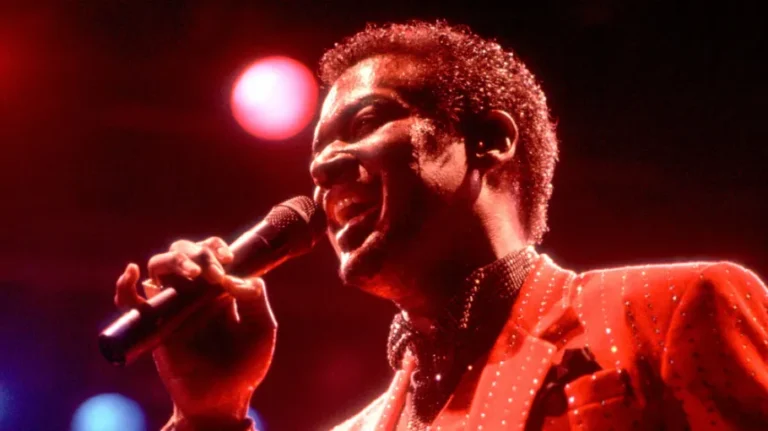In 2011, Dawn Porter arrived at Hot Docs Pitch Forum in the hopes of securing funding for her first documentary feature, “Gideon’s Army.” Thirteen years later, Porter is back in Toronto with her 10th feature doc “Luther: Never Too Much,” which will open the 31st edition of Hot Docs.
The 101-minute film about the life and career of the late R&B singer Luther Vandross made its world premiere at the Sundance Film Festival in January and has since become an audience favorite on the festival circuit. In addition to serving as Hot Docs’ opening night film, the movie will also launch the Hot Doc’s Pop/ Life sidebar of films about music and musicians.
In the film, Porter chronicles Vandross’ rise from background singer to singing sensation via archival interviews with Vandross and new ones with his collaborators, including legendary recording artists Mariah Carey and Dionne Warwick. Rarely seen archives, concert footage and candid conversations bring to life one of the greatest songwriters and vocalists in recording industry history. In addition to capturing his achievements — Vandross received 11 consecutive platinum albums and sold over 50 million records worldwide — Porter also highlights the singer’s struggles, which included unrequited love, weight issues and a lifelong battle to achieve the professional respect he deserved.
The doc, which marks the first-ever estate sanctioned feature-length nonfiction film about the R&B legend, was financed by Sony Music Entertainment, the company that owns Vandross’ music. Jamie Foxx and Colin Firth both served as executive producers.
Below, Variety speaks with Porter ahead of the April 25 Hot Docs premiere of “Luther: Never Too Much.”
During his career, Vandross received eight Grammy Awards — four of which were in 2004, including best R&B album and the coveted song of the year award — along with 33 nominations. He died almost 20 years ago. Why did it take so long to make the first authorized documentary about his life?
I got the sense that his estate was pitched a lot, but they were not really moved by the pitches that they got. Luther wasn’t married, so he didn’t have a spouse or a child who could pull rank. So you have to get the whole family together and on board and they weren’t always aligned in how they were thinking about it. At some point, producer Trish D. Chetty went to them and basically said: “This is the time. Music docs are popular and Luther hasn’t had one. We can put together a good team. Don’t miss the boat.” So she did a lot to push them.
Sony Music Entertainment, which owns Vandross’ music, financed the project. Did they take convincing?
Sony was on board right away. The company is obviously a big fan of his, and they knew how much material they had, which was tremendous for us. They had all of his music, which they have the rights to, so we were able to let those songs play out in the film. We didn’t have to use just 10 seconds of a song because we were trying to save budget money. I had never done a music doc before or this type of biographical treatment. So, it was a lot of fun to discover him through his music.
Were you a big Vandross fan before making the film, or did you discover him while working on this project?
Many of my formative years were accompanied by Luther’s music, so it was very important for me to make this film and do Luther right by it. But as much as I’ve always loved his music and personality, I learned so much more about his story through the making of this film. Discovering insights into stories you think you know is one of my favorite parts about documentary filmmaking.
In addition to his music, the docu explores Vandross’ issues around weight, which was a very sensitive topic for him. Why do you think his weight was such a big deal to the press?
Luther’s weight was a topic of conversation incessantly in the late 1990s and early 2000s. I could have done a 20-minute sequence of talk-show people asking him about his weight. It was constant. He didn’t get to talk about the music first. He had to talk about where his weight was. He was on Oprah 14 times. That was a time when she too was very publicly going through her ups and downs with weight, so that’s something that they shared. I think they both related to the fact that they weren’t just struggling with weight, they were struggling with weight in public. And in general with weight gain and not being able to lose it, there is a lot of shame around it. This feeling of, “Why can’t I master this?” It’s a conversation we are having today. Two weeks ago, Oprah says she uses weight loss drugs and it prompts an ABC news special.
The media was also fixated on Vandross’ sexuality. You interviewed various people who were close to Vandross including Valerie Simpson, bass player Marcus Miller and songwriting collaborator Richard Marx, who basically say it was none of anyone’s business who he liked or loved. Was his sexuality a hard topic to cover, since Vandross didn’t want anyone to speculate about whether he was homosexual or not?
I really, really struggled with that because he dealt with it the way that he dealt with it. So, in the end, what we decided is the thing to do is let him speak for himself. If you think about the time that he was living in — AIDS was rampant — and he’s already struggling to become a pop star. Who are we to say what decision he should make about how much he talks about his sexuality? And he just says, “I’m not gonna give you an answer.” I think that it’s frustrating for us, but that’s the answer he chose to give and that’s the answer we chose to honor in the film. Some people will be happy with that. Some will be upset about that.
Another touchy subject that the film tackles is a fatal car accident that Vandross was responsible for. Why did you want to include that in the film?
The car crash was something I had never heard about, so that was news to me. I really wanted to make the point that he had some really terrible things happen in his life and I think it was an important subject to raise.
Sony funded this film, but you decided to make it without a distributor attached. As mentioned, music docs are all the rage right now. Why not find a distributor before taking the doc to Sundance?
The thought was celebrities, great music, make a good movie and try to sell it out of a festival. It seemed like a good idea.
I have been to several film festivals where the film has screened including Sundance, Full Frame and Sarasota, and audiences love it. The music and the celebrity factor make it a very commercial film. Why do you think the film has yet to find a distributor?
It’s been very surprising to me. I’m sure that it is going to find the right home and we are in some advanced conversations, but yeah, I’m a bit perplexed why the film hasn’t sold yet.

